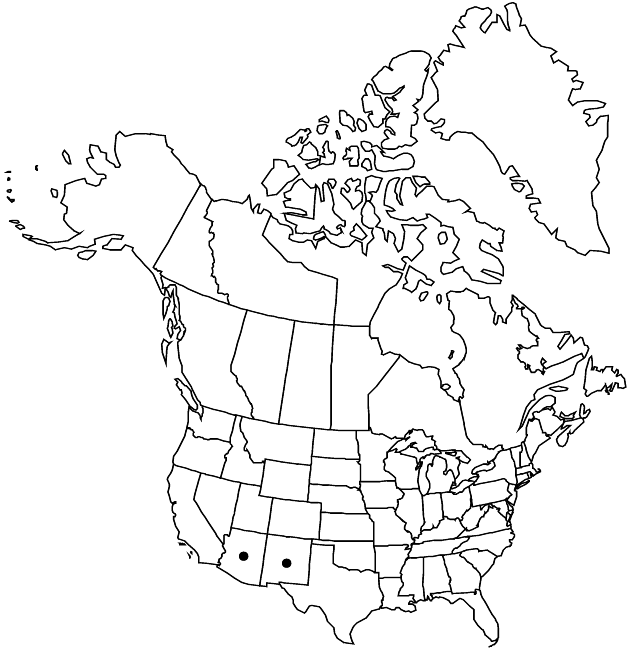Cirsium arizonicum var. rothrockii
Sida 21: 210. 2004.
Stems glabrous. Leaf blades ± deeply divided or the distal unlobed and merely spiny-dentate, faces glabrous or the basal abaxially sometimes thinly tomentose, rarely with septate trichomes abaxially along the midveins; main marginal spines often stout, 5–15 mm; cauline bases usually narrowed, not decurrent. Involucres cylindric to narrowly ovoid. Phyllary spines slender to very stout, 5–30 mm. Corollas bright red, 28–32 mm, tubes 10–12, throats 1.5–3 mm, lobes 15–17 mm; style tips 1–2.5 mm. 2n = 30 (as C. rothrockii).
Phenology: Flowering summer–fall (Jun–Oct).
Habitat: Rocky slopes, embankments, pine-oak-juniper-cypress woodlands, montane coniferous forests
Elevation: 1500–2800 m
Discussion
Variety rothrockii is endemic to Chiricahua, Dos Cabseos, Huachuca, Peloncillo, Pinal, Pinaleno, Sierra Ancha, and White mountains of southeastern Arizona and adjacent New Mexico, where it largely replaces var. arizonicum. The name Cirsium rothrockii has been misapplied to similarly glabrous plants of the Four Corners region (e.g., S. L. Welsh 1983), but those plants are assigned here to other varieties.
Selected References
None.
